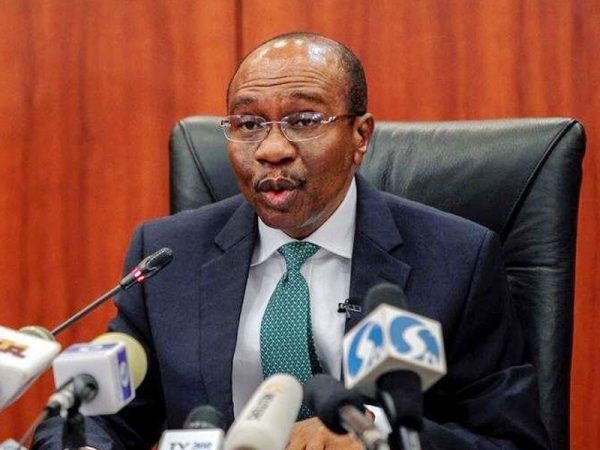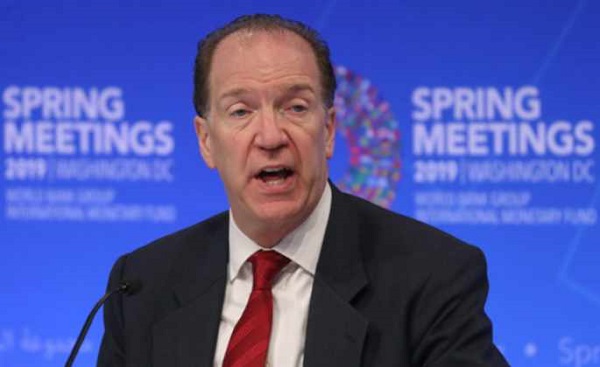Nigeria mulls strategy to phase out non-bio degradable plastics

The Central Bank of Nigeria (CBN) has disclosed a plan to commence the recycling of waste polymer notes.
The announcement came as the bank marked World Environment Day 2018, yesterday.
The United Nations sets aside June 5 every year to encourage worldwide awareness and action for the protection of the environment. This year’s theme is ‘Beat Plastic Pollution.’
“It’s gratifying to inform you that in line with the bank’s commitment to a green and low carbon economy, management has approved the recycling of our paper waste into tissue paper, which will be donated to the society, as part of our Corporate Social Responsibility.
“Management is also in the process of concluding the recycling of our polymer note wastes into everyday plastics such as flower pots, dustbins etc., and the disposal of our electronic waste in an environmentally sound manner,” said CBN Governor Godwin Emefiele in Abuja.
The bank’s resolve followed a global call for action to reduce plastic consumption and ensure a healthy environment.
A MacArthur Foundation report to the World Economic Forum in 2016 had raised the alarm that only 14 per cent of plastics used in packaging is collected for recycling globally.
This results in a yearly loss of $80 billion to $120 billion to the world economy.
But there are even more worrying statistics on the world’s use of plastics.
Aligning with UN data, Senior Special Assistant to the President on Sustainable Development Goals, Princess Adejoke Orelope-Adefulire, in a statement, noted: “We throw away enough plastic to circle the earth four times every year.
Much of that waste doesn’t make it into a landfill, but instead ends up in our oceans, where it’s responsible for killing one million seabirds and 100,000 marine mammals every year.
And it can persist for up to 1,000 years before it fully disintegrates. For the good of the planet, it’s time to rethink how we use plastic.
“Every year, 500 billion plastic bags are used around the world; 13 million tonnes of plastics leak into the ocean; 17 million barrels of oil are used on plastic production; 83 per cent of tap water is found to contain plastic particles.
This is alarming and dangerous to the environment. In particular, it’s impacting the ocean, which constitutes the lungs of our planet, providing most of the oxygen we breathe.”
She described this year’s theme as a call to action to combat one of the world’s greatest environmental challenges and reduce the heavy burden of plastic pollution on the environment.
In a bid to reverse the awful situation, Vice President Yemi Osinbajo disclosed that the Ministry of Environment has partnered with critical stakeholders to develop a national strategy that would phase out non-bio degradable plastics in Nigeria.
At the Banquet Hall of the Presidential Villa, Abuja, Osinbajo said the ministry was also in partnership with state governments to develop a plastic waste recycling programme that would involve the establishment of recycling plants across the country.
Two plants have been completed in Ilorin, Kwara State and Lokoja, Kogi State. Work is ongoing on another in Karu Local Government Area of Nasarawa State, he said.
Osinbajo furthermore challenged multi-national corporations that produce fast-moving goods in plastics to take steps towards managing wastes.
“It is my view that to control the proliferation of plastic sachets, we must go back to the major producers of fast-moving goods, to put in place recycling programmes that could effectively ensure that while we seek environmentally-friendly options for packaging, we are keeping the environment as free of plastics as possible,” he said.
He added: “Nigeria is in a good place to lead Africa and indeed the world in beating plastic pollution. There are a good number of effective initiatives that we are considering as we develop policies.”
Senate President Bukola Saraki, represented by Senator Victor Umeh, said the legislature would continue to support the Ministry of Environment “by providing robust laws that would ensure a healthy and sustainable environment.”
Earlier, the Minister of State for Environment, Ibrahim Jibrin, said his office has been up and running on matters of pollution and waste management, and has packaged policy targets and regulatory benchmarks aimed at reducing plastic pollution in the country.
The Nigerian National Petroleum Corporation (NNPC) also weighed into efforts to save the environment, announcing a new policy it said would check waste and pollution in its operations.
The Group Managing Director, Maikanti Baru (represented by the Chief Operating Officer, Gas and Power, Saidu Mohammed) said the policy would make effective management of waste streams generated during operations a priority through the use of the best available technology.
The corporation will, henceforth, employ the “principle of the 3Rs – Reduce, Reuse and Recycle – to achieve goal zero of no harm to people and no harm to environment throughout its operations,” he said.
On its part, Visionscape Sanitation Solutions, the company contracted to clean up Nigeria’s most populated city, Lagos, urged residents to reduce their use of plastic and rubber materials to win the fight against plastic pollution.
“Curbing plastic pollution is a collective effort for all to do. This would be to the benefit of every one of us,” said Operations Manager, Shola Taiwo.
In a statement by its Lead Director, Eze Onyekpere, the Centre for Social Justice, stressed that beyond the theme of plastics, the Nigerian constitution places an obligation on the government to protect and improve the environment and safeguard the water, air and land, forest and wild life of the country. It, therefore, made the following recommendations to the authorities:
“Taking of policy and legal steps to reduce plastic pollution; prioritisation of climate smart agriculture and reforestation; establishment of the Environmental Protection and Rehabilitation Fund, to be financed by holders of mineral titles; support and mobilisation of resources for renewable energy use; implementation of the two per cent per year energy efficiency target in the Paris Climate Change Agreement; and mainstreaming of the low carbon framework into Nigeria’s budgeting system and increase of allocation to the environment, in federal and state budgets, to not less than two per cent of the overall budget.”
Others are: “Urgent and targeted steps to address deforestation and desertification through increased resource mobilisation, greater accountability, transparency and value for money in resource expenditure and involvement of communities in the interventions; cleanup of oil spills in Ogoniland and the entire Niger Delta region, and addressing of the incidence of ‘black soot’ in Rivers State.”







